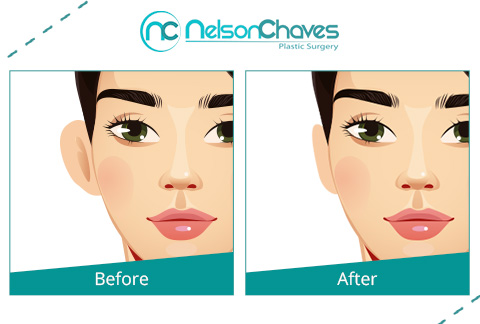Ear Surgery
 Patients often feel self-conscious about their prominent ears because of their shape and size or because people make unpleasant comments about them. This is a very common procedure among children between the ages of four and 14 who have been bullied at school. By the time a child reaches seven years of age, their ears have fully developed, and the child can undergo surgery.
Patients often feel self-conscious about their prominent ears because of their shape and size or because people make unpleasant comments about them. This is a very common procedure among children between the ages of four and 14 who have been bullied at school. By the time a child reaches seven years of age, their ears have fully developed, and the child can undergo surgery.The procedure is called otoplasty and it seeks to reposition the ears so they don't stick out more than they should.
The First VisitDuring the first visit, I have a frank and open conversation with my patients. I ask them to tell me why their ears bother them and what they hope to achieve with the surgery. Then I examine the patient and tell him or her about the best possible results I can offer. My patients must also tell me about their habits, any ongoing medical treatments, allergies to medications, etc. This helps me decide whether anesthetics can be used. I generally use local anesthesia for this procedure.
Surgical TechniqueEar surgery (otoplasty) is a quick procedure. It typically takes around an hour and has a recovery time of three days. The procedure can be performed on adults with local anesthesia, but general anesthesia is recommended for children. However, there are children who can keep still with local anesthetics and sedatives.
The procedure is done on the back of the ear, where the incision can remain hidden. After the incision, the cartilage is adjusted to form the desired shape. The technique that is used depends on the degree of deformity, as this will ensure a natural and predictable result. Lastly, the incision is stitched up.
 RecoveryOnce the procedure is finished, I wrap bandages around the patient's head to keep their ears in place. A week later, the stitches are removed, and the bandages are replaced with an elastic band, as it is a lot lighter and more comfortable for the patient.
RecoveryOnce the procedure is finished, I wrap bandages around the patient's head to keep their ears in place. A week later, the stitches are removed, and the bandages are replaced with an elastic band, as it is a lot lighter and more comfortable for the patient.Patients who undergo an otoplasty can quickly return to their normal daily activities. However, they should avoid sleeping with their head elevated or in positions that might cause the ears to bend. Medication can be prescribed if the patient feels any pain. Parents must keep a closer eye on their children to ensure a successful recovery. The results of the surgery are permanent.
Children usually feel better about themselves after the procedure, as they are no longer bullied about their ears. Adults also feel better about themselves, as I always keep their best interests and expectations in mind. My patients will have the desired results as long as they follow my instructions before and after the surgery.

